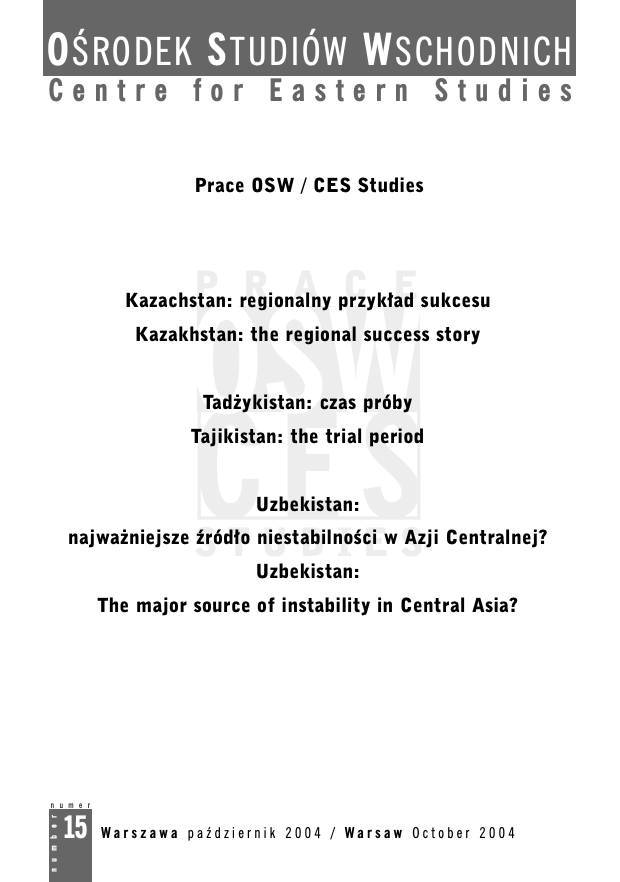Tajikistan: the trial period
Tajikistan: the trial period
Author(s): Krzysztof Strachota
Subject(s): Politics / Political Sciences, Politics, Governance, Public Administration, Public Law
Published by: OSW Ośrodek Studiów Wschodnich im. Marka Karpia
Keywords: Tajikistan
Summary/Abstract: 1. Tajikistan in its present state has been built on the civil war experiences and provisions of the peace accords signed in 1997. These have had a great impact on the present form of the state, its political scene and power mechanisms. President Emomali Rakhmonov is the central figure in the state. The political system, which he has cocreated, is based on - unique in this region - political pluralism (the existence of the Islamic party), decentralisation (far-going independence of the regions and relatively limited potential of the central structures) and compromise as the basic way of resolving conflicts. Such a system has so far guaranteed stabilisation and normalisation of the country.2. Since 2002, gradual erosion of the system, which is due to the president's political offensive and occurrence of new threats (new forms of Muslim fundamentalism) has been visible. The president's attempts to unilaterally challenge the existing order may rekindle the old conflicts. The system's evolution and reform is necessary, a good occasion for which should be the 2005 parliamentary elections.3. 11th September 2001 and the consequences thereof, i.e. actions of the antiterrorist coalition in the region and Tajikistan's participation in them has meant a real breakthrough for the country. Those events have removed the greatest threats (the Taliban Afghanistan), made the country really open to the world and cooperation with other countries that CIS members, raised its prestige and reinforced its position in the international arena. Although they have not broken the Russian domination in the region - especially felt in Tajikistan - still, they have challenged its monopolist position in the fields of security, regional policy, economic activity and domination in terms of civilisation in the broad meaning of the word.4. Reinforcement of the country's internal stability (inter alia through adaptation of some democratic mechanisms) and skilful usage of the interest the powerful states show in Tajikistan is a unique opportunity for this country's development.
Series: OSW Studies
- Page Count: 84
- Publication Year: 2004
- Language: English, Polish
- eBook-PDF

